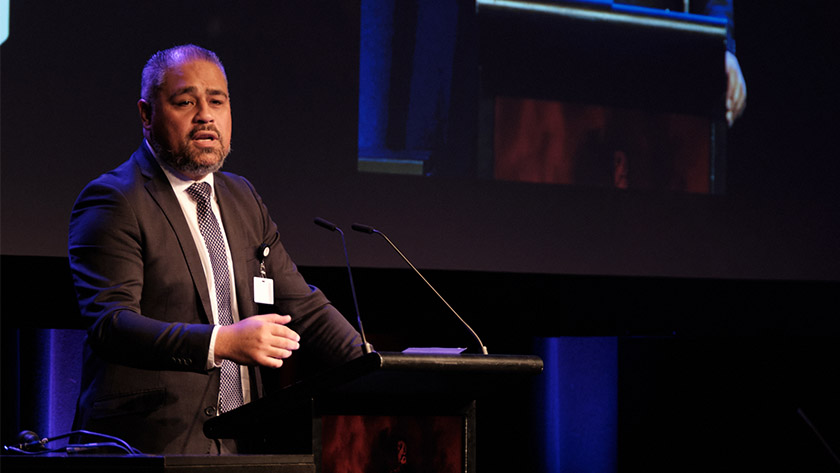Mana Motuhake – independence – would be baked into the proposed Māori Health Authority, Associate Health Minister (Māori health) Peeni Henare says.
Fronting to the Indigenous Nurses Aotearoa Conference 2021, Henare (Ngāti Hine, Ngāpuhi) said upcoming health reforms would profoundly change the current system.
This year the Government announced plans for a Māori Health Authority (MHA), with funding to commission its own services, as well as the amalgamation of all 20 district health boards into a single entity, Health NZ (HNZ).
He said the reform wasn’t a reset – it would “wipe the slate clean, and actually start afresh”.
“My job is, in particular with the legislation, is to make sure that… it doesn’t just reflect Te Tiriti o Waitangi… what we want to be able to do in this legislation is be far more explicit about what we mean when we want to talk about Te Tiriti o Waitangi when it comes to the provision of health care.”
The legislation should “deliver a structure for a Māori Health Authority as best we can, to give mana motuhake”.
Delay in expected timeline
He said the expectation had been the legislation could be introduced by the end of August, but was looking more likely to be by the end of September.
It was expected that the governance bodies and their members for both HNZ and the MHA would be announced in early September.
The audience should mark July 1, 2022, in their diaries as the launch date for the new entities, Henare said.
However, it was “misguided”, Henare said, to expect the MHA to solve all of the problems for Māori health. Most Māori people would work in, and access their health services from HNZ. Therefore a focus on equity “must be” maintained throughout HNZ, Henare said.
Vaccine nurses stretched
Henare spoke to the conference while facing pressure over the Government’s rollout of COVID-19 vaccinations to Māori.
The number of Māori people vaccinated sat “stubbornly low”, despite direct support for Māori health providers, he said.
These providers were stretched. “They actually can’t do much more: we’re delivering in marae, we’re delivering in communities, we’re delivering in homes for our people.”
Completed Māori vaccinations (two Pfizer shots) comprised about 9 per cent of the overall total for Aotearoa: about half the Māori proportion of the total population.
“So as role models and as leaders in your community, my plea is that you continue to push the message around vaccination.”
The focus on Māori and Pasifika vaccination intensified after the latest outbreak of the Delta variant.
Henare did not give an explanation of the Government’s plans to boost nursing recruitment – instead throwing the issue back at the audience.
“What does a workforce strategy look like moving forward? That’s what I want to hear from you.”
He said he wanted to hear a “very deliberate” way of doing it.
Henare offered an example of his own Ngāti Hine upbringing, where rangatira gathered rangatahi and set them on a path towards a chosen profession.
“My offer to you is that I’m here to help you do that too. We know the Crown has a role to play in that, and I want to play my part.”



